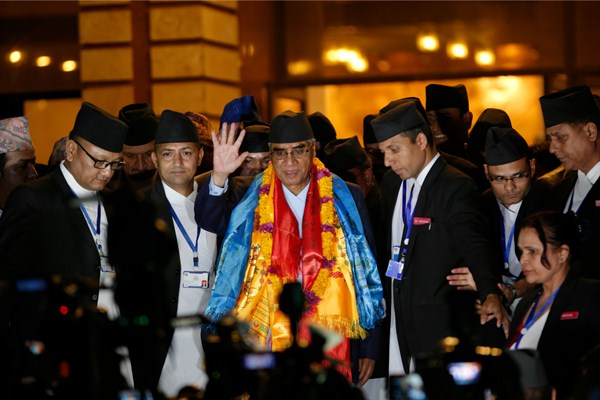KATHMANDU, Nepal—It’s not easy to be elected as Nepal’s prime minister. It’s even more difficult to remain in the post for more than a year. When Sher Bahadur Deuba—the 71-year-old president of Nepali Congress, the largest party in the parliament—took the job in May, he became the country’s 10th premier in the past 11 years.
This isn’t Deuba’s first exposure to the hazards of the country’s top political position. He was also prime minister—briefly—in 2004. Back then, having sacrificed a male goat before entering the prime minister’s official residence, he was nevertheless sent to a detention center following a bloodless coup engineered by the king a year later. That may explain why Deuba consulted his private astrologer before moving into the same residence last month.
Since the 2005 coup, Nepal has made huge strides. It ended a decade-long civil war with Maoist rebels in 2006, and two years later abolished the centuries-old Hindu monarchy to become a secular republic. After lengthy debates and several political impasses, it eventually promulgated a constitution through a Constituent Assembly elected by the people in 2015, realizing a 50-year-old vision.

